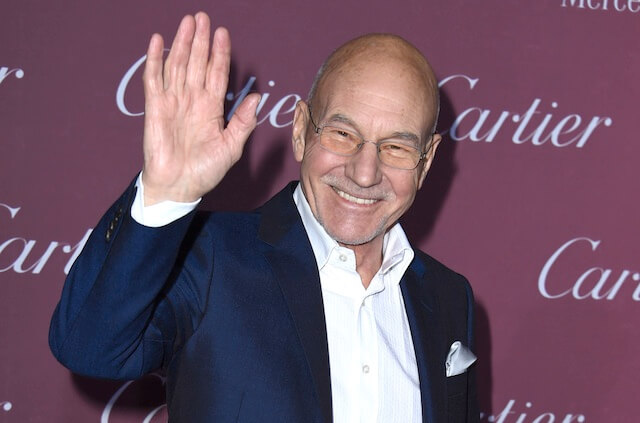When we spoke in December, Patrick Stewart was about to leave his home in Brooklyn for a stint in Los Angeles. There he’ll shoot “Blunt Talk,” a show he’s doing with Seth MacFarlane, which also means missing most of New York’s notoriously fun winter. But it also means not being in Brooklyn, which he’s come to love, especially because he remembers when it wasn’t being filled with wealthy celebrities. “I worked in Brooklyn in 1971, at BAM,” Stewart recalls. “We were bused from Manhattan and we were counted on the bus as we got off and counted again after the show. We were advised it would be better if you do not go further than a one-block radius of the Brooklyn Academy of Music.” He works in a different performing art in “Match,” a new three-person film adapted by Stephen Belber from his play. The actor plays Tobi, an aging choreographer who thinks he’s talking to a couple (Carla Gugino and Matthew Lillard) about a dissertation but realizes they have ulterior motives. Among the revelations is that Tobi may have impregnated an old flame and chose to go on living his single, extravagant life. “Match” was originally mounted on Broadway, starring Frank Langella in the role. Langella played Tobi as rougher, while Stewart’s version is strident but more vulnerable. He hadn’t seen Langella’s performance, though he wished he had. “I only responded to what was in Stephen’s screenplay,” he says. “There’s a kindness and generosity and sensitivity in Tobi. He tries to help Carla Gugino’s character and be supportive and give her good council — which includes a conversation about cunnilingus.” It was a new thing for him. “I’ve not played anyone quite like Tobi before,” Stewart reveals. “The idea of making sacrifices when you’re young and building a career and what do you lose — these are things I understood well.” Indeed, the role hit close to home. “If you are passionate about wanting to do something — and it doesn’t have to be in the world of arts or creativity — it requires a certain focus and dedication,” he explains. “I missed a lot of my children as they were growing up. I just missed it. I wasn’t there. I did the best I could. I think my son has forgiven me. And my daughter’s getting close.” That being said, he’s loved spending a life with actors, both on stage and on screens. “How lucky I’ve been to have spent a huge part of my life in the company of actors,” he says. “I always wanted to belong to ensembles and groups. Then I found myself in ‘Star Trek: The Next Generation,” and there I was with the same group for 12 years. I’ve often thought if a disaster was to happen, I would quite like it to be in a rehearsal room. There’s nowhere else I could think of being safer or in better company than being surrounded by theater people.” He’s less cool with the stereotype of actors as close-knit, self-obsessed and self-indulgent. “We get, on the whole, pretty bad press,” he says, smiling. “In England we’re called ‘luvvies.’ I detest that word. It’s so patronizing and so inaccurate.” “Match” is also notable because it’s the first time since the 1995 film of “Jeffrey” that he’s played LGBT. Tobi is bisexual, whereas in “Jeffrey” he played the flamboyantly gay scene-stealer Sterling. “Somebody quite early on asked me, ‘Are you doing to be like Sterling again?’ And I thought, no. The gay man that I created in that film had very much to do with when it was made.” Nowadays gay characters tend to be less outsized. He speaks with enthusiasm about “Love is Strange,” starring John Lithgow and Alfred Molina as a longtime couple forced to live apart. “My wife and I had not seen it. We both sat there sobbing.” One other aspect of “Match” that really spoke to its star was its portrayal of aging and looking back on a life with a mix of love and regret. “The last two or three years I’ve become really aware that a click is ticking now,” he says. “I didn’t use to think about it. Why would you think about it?” he says. “There’s this possibility of things beginning to close down. Do you just let that happen? Does Tobi, at the end, defy that? Does he keep opening doors? It makes aging a more interesting process.”
Interview: Patrick Stewart talks ‘Match,’ Brooklyn and aging

Getty Images
Follow Matt Prigge on Twitter @mattprigge















